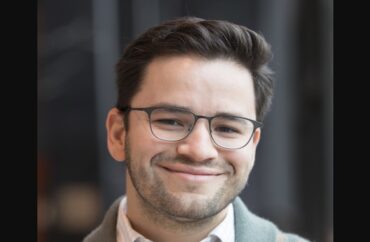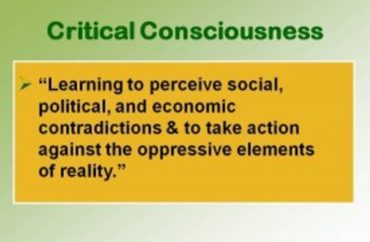
Illegals face ‘discriminatory, unwelcoming, and culturally hostile climates’ at colleges
A Rutgers University psychology professor recently published a paper on how “critical consciousness” can assist undocumented students fight discrimination and improve their mental health.
Germán Cardenas, who according to his faculty bio “identifies as an immigrant from Latin America” and whose research deals with the “intersecting foci on the psychology of immigration and on critical consciousness as a tool for social justice,” told The Daily Targum there’s a connection between prejudice and increased critical consciousness.
“[T]he more discrimination that one experiences, the more awake one becomes to the systems that are at play and the way that it impacts one’s well-being,” Cadenas (pictured) said.
Critical consciousness is a progressive concept developed by far-left Brazilian philosopher Paulo Freire, who believed the purpose of schooling was to “liberate the masses from systemic inequity.”
 A 2019 education article noted critical consciousness is the “core of social justice teaching” and is “a heightened awareness of the world and the power structures that shape it.”
A 2019 education article noted critical consciousness is the “core of social justice teaching” and is “a heightened awareness of the world and the power structures that shape it.”
Cadenas told the Targum he and his family “didn’t have a pathway to legal status” — similar to the 11 million or so illegal immigrants currently in the United States.
This experience led him to “becoming an activist for immigrant rights.”
According to the “impact statement” of Cadenas’ paper, the undocumented face “discriminatory, unwelcoming, and culturally hostile climate[s]” at colleges and universities.
MORE: ‘Critical Consciousness’ certificate offered to Stanford STEM students
For the study, 171 undocumented students were surveyed on how often they were discriminated against as well as their levels of psychological distress, critical consciousness and desire to engage in social activism.
Cadenas identified two components of critical consciousness: reflection, in which someone is able to analyze the oppression they are experiencing, and involvement, when someone begins to work against the systemic oppression they are facing.
“What I found is that greater discrimination was linked to greater critical consciousness, so the more discrimination that one experiences, the more awake one becomes to the systems that are at play and the way that it impacts one’s well-being,” he said.
Cadenas said he used a “measure of everyday discrimination” to evaluate the amount of discrimination faced by the participants. This type of discrimination involves issues such as how often the students were told they were not smart or had people acting scared of them.
The study found that higher levels of discrimination against undocumented students led to a greater amount of psychological distress, and Cadenas suggested that critical consciousness may help people cope with discrimination.
Cadenas said universities can assist undocumented students by providing “mental health support systems” and programs which help them “make sense of the discrimination” they face — via “positive tools” like critical consciousness and social justice activism.
For those interested in assisting illegal immigrant students, Cadenas recommended groups such as UndocuRutgers, which believes “education is an undeniable right regardless of citizen status” and works to “dismantl[e] stereotypes and invalidat[e] dehumanizing rhetoric” about the demographic.
MORE: Coming to Penn State: ‘Critical Conversations on Trans and Intersex Wellness’
IMAGE: Rutgers U.; Excellence in School Counseling
Like The College Fix on Facebook / Follow us on Twitter





Please join the conversation about our stories on Facebook, Twitter, Instagram, Reddit, MeWe, Rumble, Gab, Minds and Gettr.